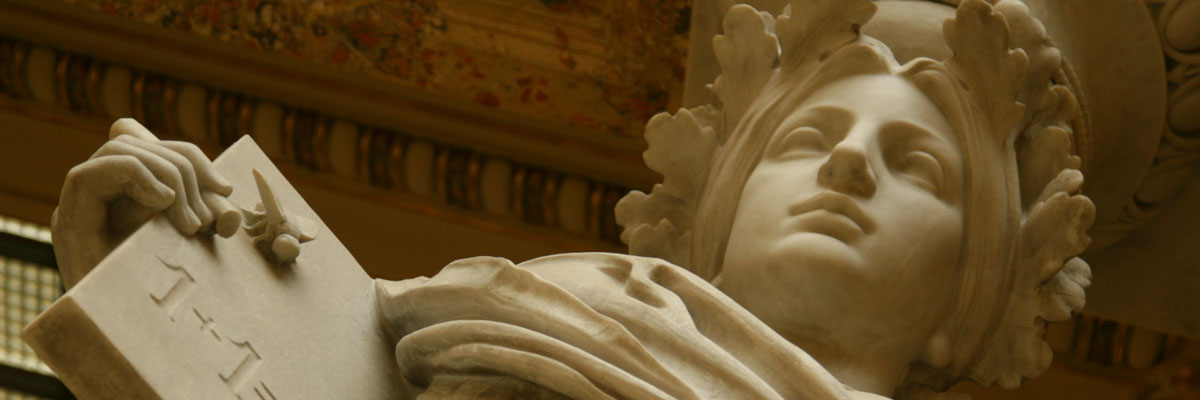
Matyáš Fendrych Receives ISTA Alumni Award
07. 08. 2025
Fendrych, a group leader at the Czech Academy of Sciences in Prague, received the award in honor of his impact on the auxin field at large, including his contributions at the Institute of Science and Technology Austria (ISTA) when he was a postdoc. He is the fourth recipient of the award.
Plant biologist Matyáš Fendrych is the recipient of the 2025 ISTA Alumni Award, presented each year to an ISTA alum to honor their outstanding achievements.
Not one to seek out the spotlight, Fendrych says he was surprised when he received the news. “I didn’t even send my updated CV to Jiří when he asked me for it, but I was really pleased when I received the message, and especially to hear what my colleagues think of my work.” Professor Jiří Friml nominated Fendrych for the award and notes that his work while at ISTA ultimately led to some of the most important discoveries of Friml’s career. “He left a crucial and lasting impact on the current and future work of our lab.” Other colleagues echoed Friml’s sentiments, including Mark Estelle of University of California, San Diego, who praises Fendrych as the international leader in studies of rapid auxin signaling.
Fendrych joined the Friml group at ISTA in 2014 as a postdoc and was instrumental in establishing the vertical microscope and root microfluidics, which are used daily by the researchers in the group. When not in the lab, he could be found meeting with colleagues from various groups for coffee or to share what they’re working on, picking up his children from the kindergarten, or biking in the woods in Klosterneuburg. “As a postdoc, it can feel like the time when you do the most, and ISTA had everything I needed, inside the lab and out.”
Since his departure in 2017, he has continued his research back home where he now leads a group at the Institute of Experimental Botany at the Czech Academy of Sciences in Prague. “I am happy to bring back some skills, procedures, and approaches that I learned abroad back to my home country.” While he still waits to publish some of the group’s more recent research, he can already share that they have found exciting data and answers in their work. “It’s great when it’s your postdocs and students that make these discoveries. These are the ‘wow’ moments that really make the job worth it for me.”
Fendrych visited ISTA for the first time in several years to receive the award at the Graduation Ceremony alongside the most recent graduates. Asked what his advice is for those considering a career in research: “Time is the most precious thing that you will give to your group as a researcher. Make sure that you enjoy what you do, and that you are doing it for you.”
(c) Press release by ISTA
Fendrych joins fellow ISTA alumni entrepreneur Harold P. de Vladar, machine learning researcher Alexander Kolesnikov, and mathematician Anton Mellit as recipients of the ISTA Alumni Award.
Media contact
Andreas Rothe
andreas.rothe@ista.ac.at
+43 664 8832 6510
About ISTA
The Institute of Science and Technology Austria (ISTA) is a PhD-granting research institution located in Klosterneuburg, 18 km from the center of Vienna, Austria. ISTA employs professors on a tenure-track model, post-doctoral researchers and PhD students. The Graduate School of ISTA offers fully funded PhD positions to highly qualified candidates with a Bachelor’s or Master’s degree in biology, mathematics, computer science, physics, chemistry, and related areas. The institute currently has around 90 research groups and 1,300 employees. By 2036, it is expected to grow to 150 groups and 2,000 employees. While dedicated to the principle of curiosity-driven research, ISTA also aims to deliver scientific findings to society through technological transfer and science education. www.ista.ac.at
Download the ISTA press release here.
Read also
- World first for Czech science: egg ageing can be reversed
- How the human genome duplicates. A Czech becomes a new EMBO Young Investigator
- For the First Time Ever, a Czech Scientist Wins the international Dream Chemistry Award
- AI recognises parasitic eggs better than the average ornithologist
- IOCB researchers take a key step toward fully controllable molecular machines
- Two of Europe´s most prestigious grants awarded to the Czech Academy od Sciences
- Czech scientists discover a cellular “safety switch” that protects DNA from damage
- Fungi may use toxic substances to spread skin infections from guinea pigs to children
- ‘Disease in a dish’ study of progressive MS finds critical role for unusual type of brain cell
- Embracing complexity to better forecast volcanic eruptions
The Czech Academy of Sciences (the CAS)
The mission of the CAS
The primary mission of the CAS is to conduct research in a broad spectrum of natural, technical and social sciences as well as humanities. This research aims to advance progress of scientific knowledge at the international level, considering, however, the specific needs of the Czech society and the national culture.
President of the CAS
Prof. Eva Zažímalová has started her second term of office in May 2021. She is a respected scientist, and a Professor of Plant Anatomy and Physiology.
She is also a part of GCSA of the EU.